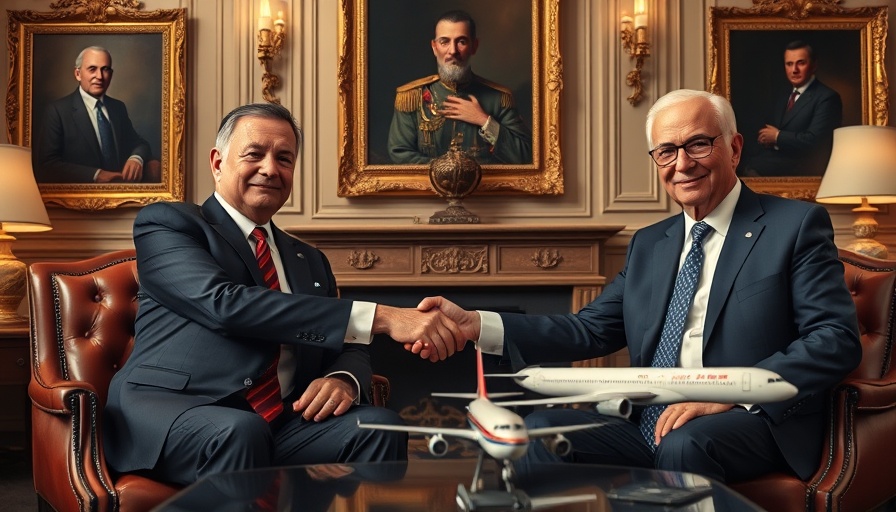
Trump and Netanyahu: A Glow of Optimism
In a recent meeting at the White House, former President Donald Trump and Israeli Prime Minister Benjamin Netanyahu embraced warmly. This encounter radiated an upbeat atmosphere designed to showcase their camaraderie. However, beneath this friendly exterior, the details of the meeting left many wondering about the weight of the promises made. Despite high hopes, tangible commitments, particularly regarding key issues like tariffs, hostages, and tensions with Turkey, remained elusive.
In Search of Clarity: Key Issues at Stake
The summit was expected to address several pressing matters, including ongoing tariff discussions and strategies concerning Turkey's emerging threat alongside Israel. While both leaders expressed a desire to strengthen ties and promote peace, the lack of definitive action leaves room for concern. For Christians who follow these developments closely, understanding these international dynamics is key, as they shape the broader geopolitical landscape that affects Christian communities and the humanitarian efforts in the region.
What This Means for Global Christians
For globally aware Christians, the summit's outcomes may resonate on multiple levels. The relationship between the U.S. and Israel holds significant implications not just for political alignments, but also for religious and humanitarian considerations across the Middle East. As local Christian communities face numerous challenges, the commitment of international leaders can impact their security and religious freedoms, emphasizing the importance of advocacy and solidarity.
Connecting the Dots: The Broader Context
Historically, U.S.-Israel relations have influenced global Christian communities, particularly those engaged in missionary work and social justice. As these socio-political dynamics play out, it becomes increasingly important for mission-minded individuals and organizations to be informed. The fragile atmosphere highlighted by Trump and Netanyahu’s handshake reflects the ongoing tension and potential for conflict that impacts all faith communities in the region.
The Call to Action
As the world watches these developments unfold, it's essential for mission-minded Christians to not just observe, but also advocate for peace, justice, and support for the persecuted church. Engage in prayer and action that supports those who are affected by the geopolitical struggles in the Middle East, fostering interfaith dialogue and understanding. Your involvement can lead to meaningful change in the lives of those who need it most.
 Add Row
Add Row  Add
Add 








 Add Row
Add Row  Add
Add 

Write A Comment